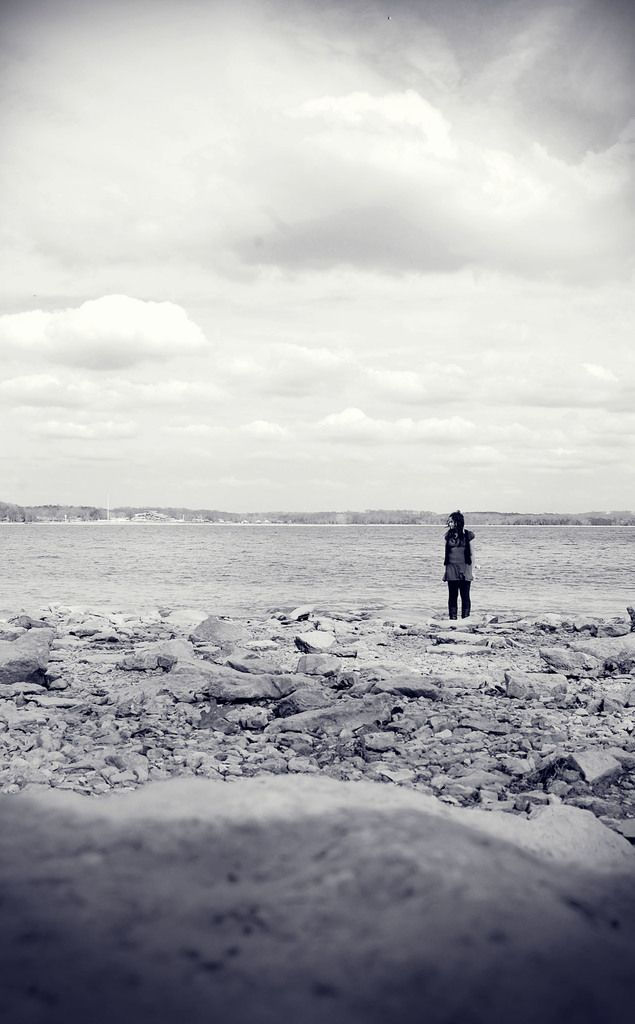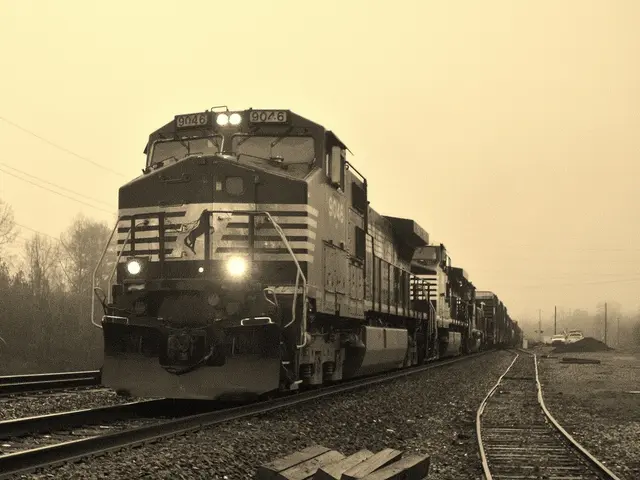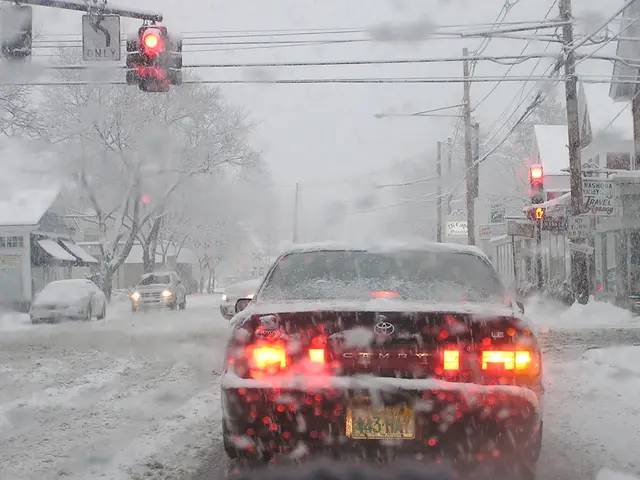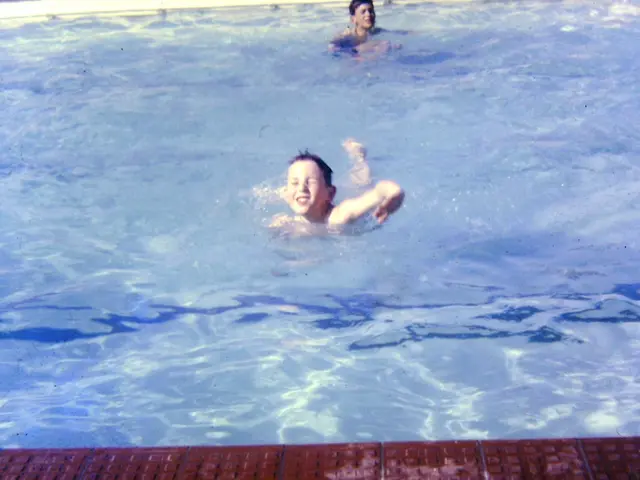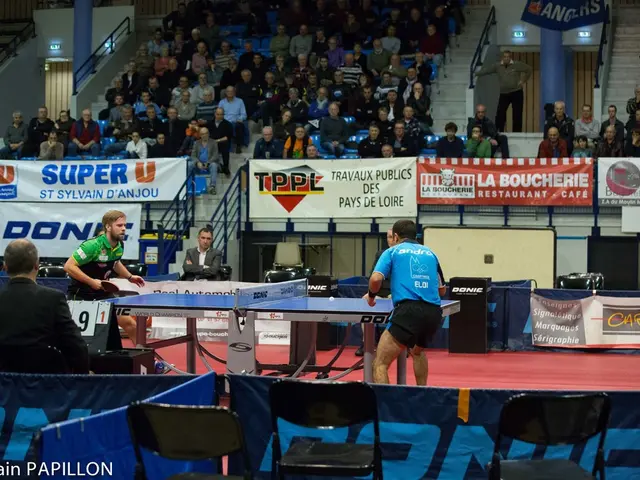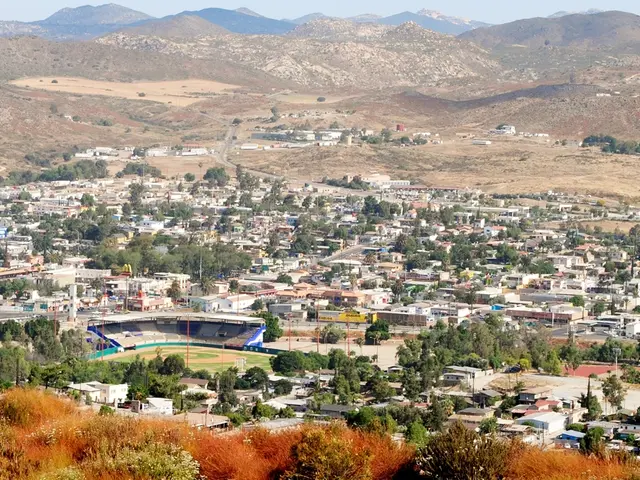Iran's Struggle: Frustration and Uncertainty
The People's Desperate Cry for Change
"Iranians grapple with uncertainty"
With Israel's persistent attacks and the imminent threat of a potential regime change, the citizens of Tehran are feeling the brunt of the tension.鈥檚he streets are filled with chaos and fear,鈥? freelance journalist Farhad Payar shares in a chat with ntv.de. Israel's Defense Minister Israel Katz threatened citizens on a Monday morning broadcast following Iran's weekend rocket attacks on Israeli residential areas. incidents of civilians being caught in the crossfire have been reported, with Iranian news agencies estimating a triple-digit death toll[1].
Unfortunately, the Iranian government has been lacking in providing aid and updates for the citizens, leaving many without proper air-raid warnings or adequate shelter. Residents are forced to seek refuge in makeshift shelters, such as cars and subway stations[1].
A Failing Economy and the Irritation of the West
The Iranian economy has been a mess, and people struggle to cope with their daily lives. Amidst the disarray, the Israeli strikes have escalated the chaos and brought the government's inadequacies to light. German-Iranian journalist Bamdad Esmaili explains, "People are becoming increasingly frustrated with the government; they believe they are wasting funds on war efforts rather than investing in their own citizens."
Iran threatens retaliation against the West, such as a potential blockade of the Hormuz Strait, which could greatly impact the global economy[1].
Regime Apprehension
The Islamic regime is growing anxious about the public's responses to the Israeli attacks and possible uprisings. according to political scientist Ali Fathollah-Nejad in an interview with "World," the government has requested reinforcements to curb any potential protests.
On the other hand, the regime is attempting to galvanize support by suppressing information and fueling the public's anger against Israel[1]. Payar explains, "The regime is not hesitant to use brutal methods in their suppression tactics, including arrests, torture, and executions."
Diverging Opposition Views
The opposition within and outside Iran shows a vast array of ideologies and goals, making a unified front difficult to achieve. Moreover, the violent suppression of recent protests, like the 鈥淧omen, Life, Freedom鈦? demonstrations, lingering in people's minds[1].
There are factions that advocate for war, hoping for the regime's fall, while others vehemently oppose attacks on innocent lives. It is close to impossible to determine the extent of the public's support for the Islamic Revolution due to the diverse opposition groups[1].
Western organizations emphasize the importance of a peaceful resolution to the crisis. The International Atomic Energy Agency (IAEA) urges dialogue and diplomacy, aiming to promote stability in the region[2].
Are We on the Brink of a Revolution?
With tensions escalating, some express optimism that the Iranian people may rise up and finally overthrow the oppressive regime. However, it is a delicate situation, and many scenarios are possible. The government's fear of uprisings and the internal division amongst the opposition parties complicate the potential for a successful revolution[1].
If a nationwide uprising were to occur, democratic forces could potentially rally together[1]. However, this would require international support to be successful. Payar warns, "If people take to the streets tomorrow, no one knows who will ultimately prevail."
In the Regime's Shadow: The MEK and the PMOI
Among the opposition groups striving for change are the MEK Resistance Units, affiliated with the People's Mojahedin Organization of Iran (PMOI/MEK). These units have been increasing their activities, particularly in Zahedan[2].
They are responsible for campaigns of banner installation and graffiti, highlighting growing resistance against the regime[2]. Additionally, the Iranian Resistance urges international bodies to ensure the health and wellbeing of detained individuals, calling for access to those imprisoned by the regime[2].
The Loss of Elite Leadership
Recent Israeli strikes have taken a toll on Iran's military leadership, killing senior officers and dismantling influential networks[1]. This turnover has weakened the regime and may signal a shift in Iran's political landscape. On the other hand, this instability raises concerns about regional security and the potential for increased violence[1].
The Quest for a Nuclear Solution
Nuclear negotiations between Iran and the U.S. have resumed, with both parties aiming to resolve disputes over Tehran's nuclear ambitions. Despite good intentions, an agreement remains elusive due to substantial differences in red lines[2].
International bodies, including the IAEA, advocate for diplomacy and transparency in nuclear-related issues, emphasizing the importance of peace and stability in the region[3].
- The European Union and its Member States are closely monitoring the unfolding events in Iran, paying particular attention to the escalating tensions between Iran and Israel, as well as internal political unrest and the economy.
- General news outlets have reported incidents of war-and-conflicts, car-accidents, crime-and-justice, and accidents in Iran, highlighting the chaos and instability that the country is experiencing.
- Amidst these challenging circumstances, politics and the role of the Islamic regime continue to be a central issue, with the regime struggling to maintain control while facing opposition from various factions, including the MEK and PMOI, who advocate for change.
